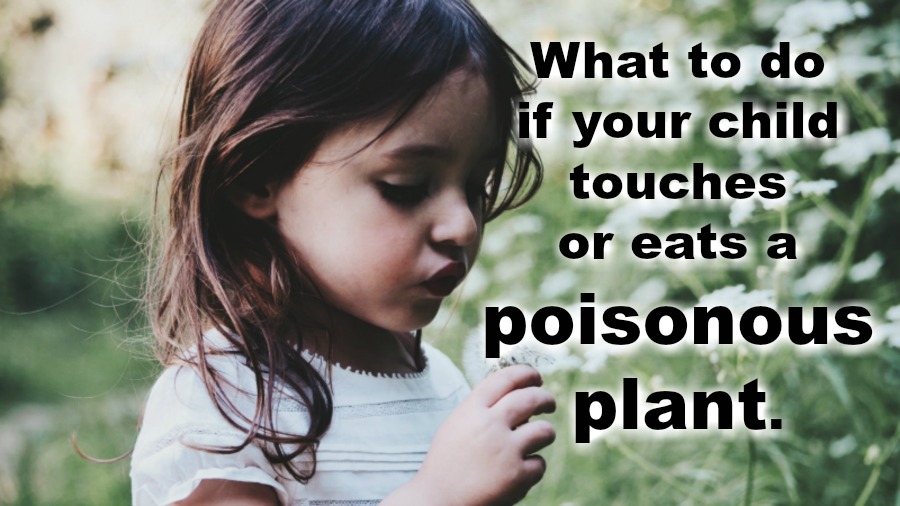
What to Do If Your Child Touches or Eats a Poisonous Plant
This section guides parents through the correct course of action should their child come into contact with or ingest a poisonous plant.
If any of these symptoms occur after your child touches or eats a poisonous plant or pesticides, call 911 immediately: choking, unconsciousness, difficulty breathing or difficulty swallowing. If your child is not experiencing these severe symptoms but has touched or eaten a poisonous plant, berry, seed, bulb, or mushroom, contact your local poison center immediately at 1-800-222-1222. Do not wait for symptoms to appear before calling. You should be prepared to give your child’s age, symptoms or illnesses, the names of plants consumed, if possible, how much and which parts were eaten, and how recently the plant was touched or ingested. The poison specialist will instruct you on what to do and which symptoms to look for in your child.
If you are somewhere you cannot immediately get assistance, do not ingest or put a plant in your mouth to check if it is poisonous. You should look for pieces of the plant in your child’s mouth and remove any that you can find. You should give him small sips of water but avoid attempting to make him vomit. If your child has a skin irritation, itching, rash or blisters, immediately rinse his skin with fresh water. Call your local poison center (1-800-222-1222) as soon as you have access to a phone line.
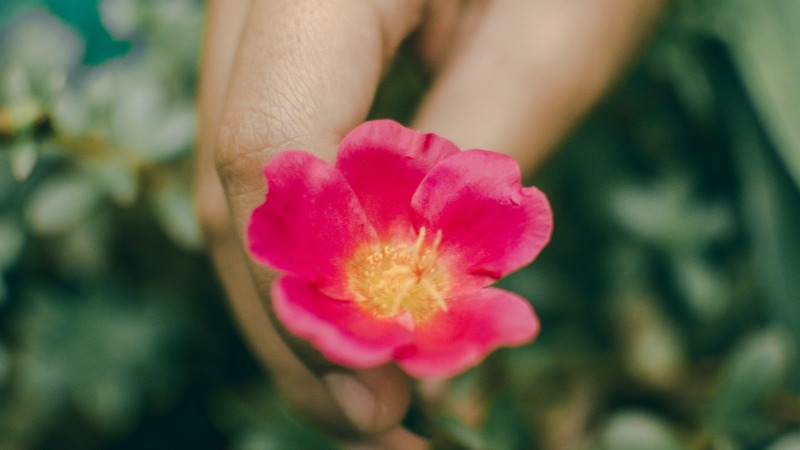
Flowers are like magnets to children. They love to pick and smell. Teach them not to eat anything from the yard. Photo by Ardi Evans on Unsplash
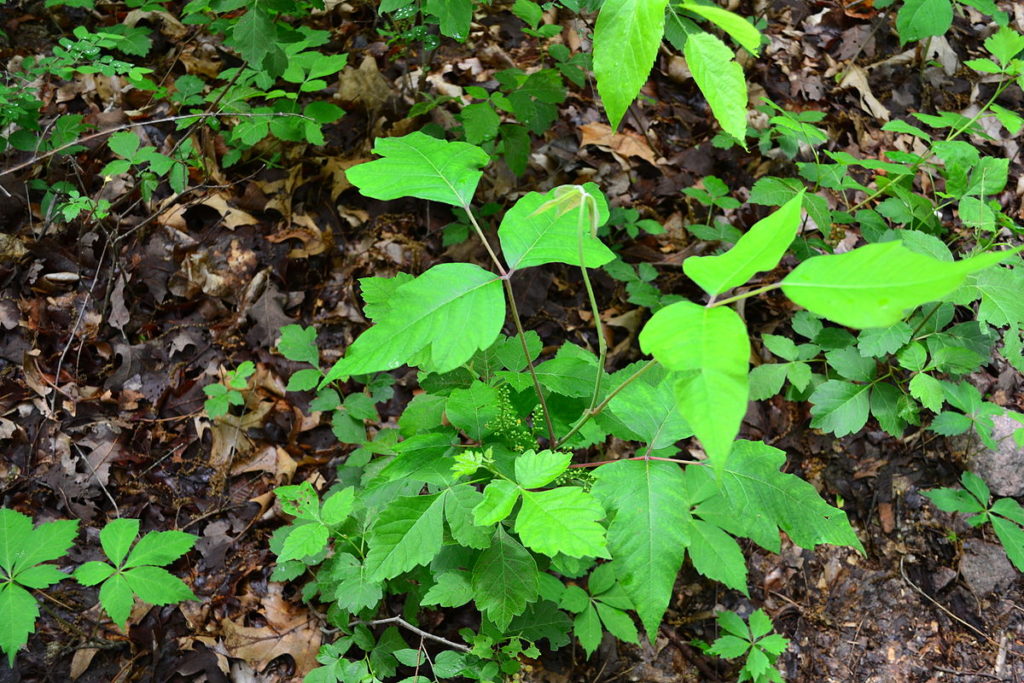
Poison Ivy is a poisonous plant you or your child do not want to even touch. Photo from WikimediaCommons
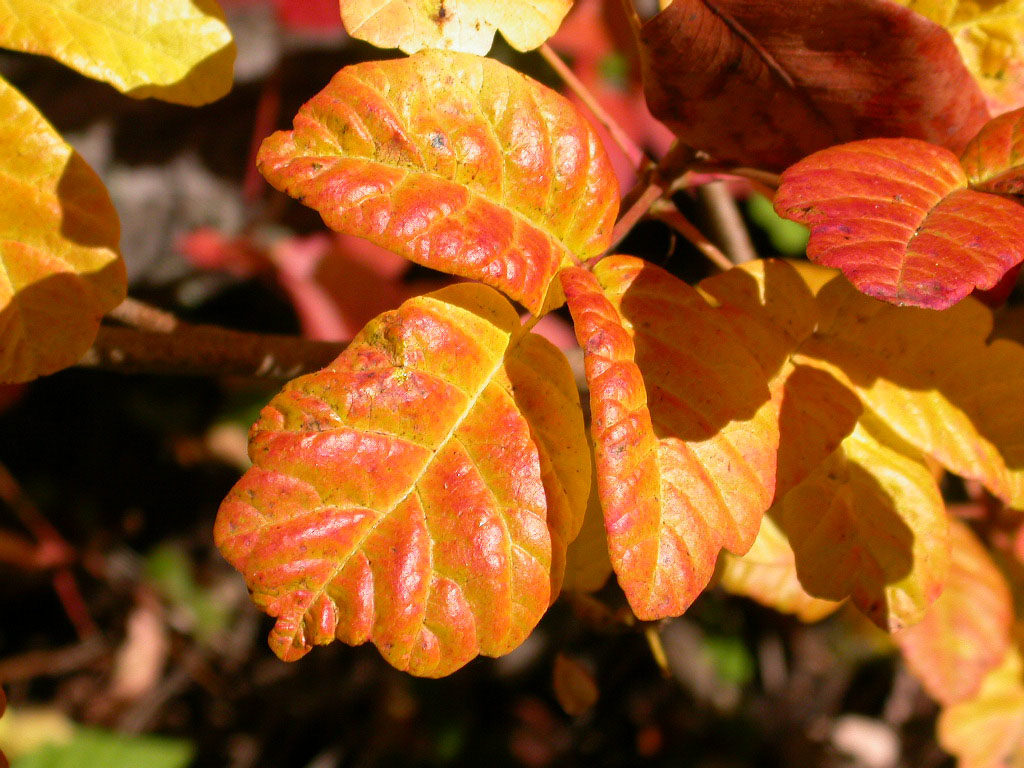
Poison oak in the fall is another gorgeous plant. Children may want to gather its leaves. Don’t touch!
Pesticide Safety
Spring and summer also bring out more pests, both inside and outside of the home. This section explores the risks pesticides pose to children and includes tips for using safer alternatives to toxic pesticides.
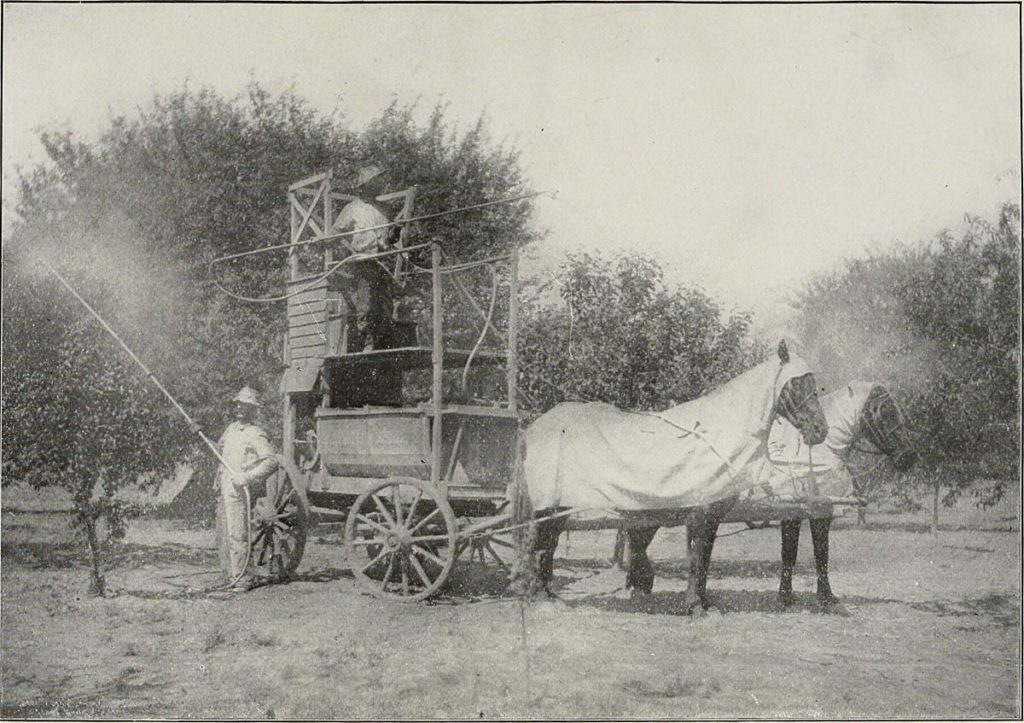
Crazy how the horses were somewhat protected from the sprays. Photo by Internet Archive Book Images on Flickr & Wikimedia Commons. No restrictions.
The National Pesticide Information Center makes it clear that all pesticides carry a level of toxicity and pose a risk to all people but especially to infants and children, who are more sensitive to the toxic effects of pesticides than adults. Because pesticides also pose a poisoning risk to children, it is critical that parents use pesticides responsibly.
If you do choose to use a pesticide, be sure to read the product label to ensure you use it correctly and apply it exactly as the label instructs. Look for the least-toxic pesticides available and store them in their original containers far out of the reach of children. It is critical that you keep your children and pets out of treatment areas while you apply pesticides and until treated areas dry. Children should wear shoes and sit on blankets or use other barriers between them and your lawn if it has recently been treated. When your children are finished playing, make sure they wash their hands with warm water and soap as soon as they enter your home.
The safest way to handle pests in gardens, yards, and homes is to use insecticidal soaps, horticultural oils, and natural ingredients to keep them at bay. If you are looking for different forms of pesticides that can keep your family garden safe, as well as the food you grow in it, try these alternatives:
- Vegetable oil mixed with mild soap for insects like aphids and mites
- Mild soap mixed with water for insects like whiteflies, beetles, aphids, and mites
- Neem oil mixed with mild soap and water to disrupt the life cycle of insects and to protect plants before they become infested
- Diatomaceous earth as a natural pesticide
- Pureed garlic mixed with vegetable oil, mild soap and water to act as an insect repellent
- Garlic, onion, and cayenne pepper, mixed with liquid soap as a natural insecticide
If parents take steps to learn about how to protect their children from pesticide and plant poisoning, most poisonings could be avoided. However, accidents happen to even the most prepared, so it is important to always be ready to contact a poison control center or emergency services if a child ingests or comes into contact with poisonous plants and pesticides.
Read More – Discover several quality resources for preventing poisoning by plants and pesticides.
Author: Angie Bersin, Redfin Reality
Angie is a Marketing Coordinator at Redfin and creates content for the Redfin blog. She writes on a variety of topics including outdoor activities, fitness trends, and real estate. In her free time, Angie enjoys hiking with her dog, exploring the beautiful city of Seattle, and traveling the globe. See original article
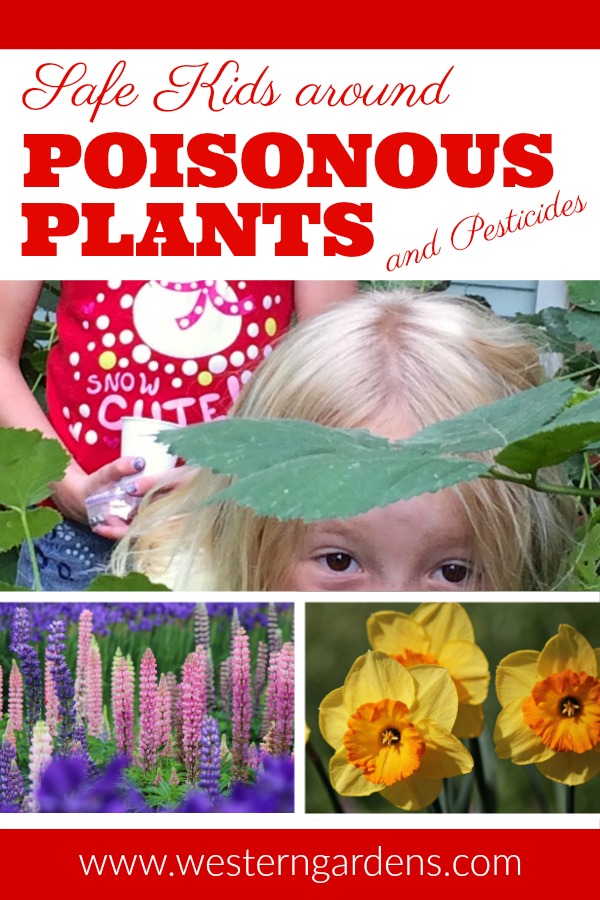
Western Gardens
Latest posts by Western Gardens (see all)
- How to Prepare the Ground for your Garden - April 28, 2018
- Pest Control – the Annoying Box Elder Bug - April 19, 2018
- Keep Kids Safe from Poisonous Plants and Pesticides – Part 1 - April 14, 2018